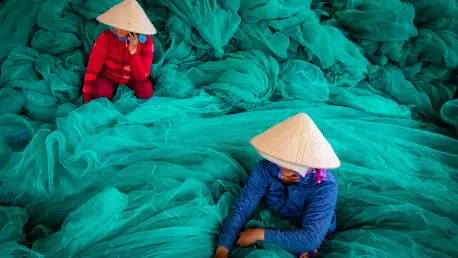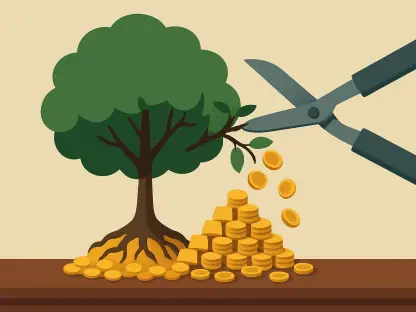In today’s discussion, we are privileged to have Marco Gaietti, a recognized authority in Business Management and strategic operations. With his wealth of experience, Marco sheds light on the pressing concerns about the ethical implications in global supply chains, specifically highlighted in a recent investigation by Global Rights Compliance. This inquiry delves into the controversial ties Western businesses maintain with forced labor in China’s critical minerals sector, particularly in the Xinjiang region.
Can you explain the significance of the Global Rights Compliance investigation into critical minerals supply chains linked to forced labor in Xinjiang?
The investigation by Global Rights Compliance is crucial because it brings attention to the ethical and human rights issues in the global supply chains of critical minerals. These supply chains have been linked to forced labor involving Uyghurs in Xinjiang. The report highlights how Western companies might inadvertently perpetuate these human rights abuses through their procurement practices. By analyzing the links, it encourages these companies to re-examine their roles and make changes to prevent usage of forced labor.
What critical minerals were specifically examined in the Global Rights Compliance report?
The report specifically looked into supply chains for titanium, lithium, beryllium, and magnesium. These minerals are vital components in numerous industries, from tech gadgets to renewable energy. The investigation focused on how these materials are sourced and the connections between forced labor and these vital supply chains.
How have previous reports, such as those from the BBC and The Bureau of Investigative Journalism, influenced the scrutiny of forced labor practices in China?
Previous reports by organizations like the BBC and The Bureau of Investigative Journalism have played a significant role in intensifying scrutiny over forced labor practices in China. They uncovered systemic issues and raised broader awareness about the unethical practices underpinning consumer products in Western markets. Such reports have set a precedent for deeper investigations, pushing human rights issues onto the agenda of businesses and policymakers around the world.
What specific forms of labor transfers and abuses do Uyghurs endure according to the Global Rights Compliance report?
Uyghurs experience various coercive practices including forced labor transfers, which can be accompanied by threats of detention and violence. They are often incarcerated without due process and then forcibly relocated to work in different factories, enduring unsafe and harsh conditions. This state-sanctioned labor transfer system strips individuals of their autonomy and is described as a form of state-imposed forced labor.
How did the U.S. State Department categorize the treatment of Uyghurs in the Xinjiang region back in 2021?
In 2021, the U.S. State Department classified the treatment of Uyghurs in Xinjiang as genocide and crimes against humanity. This categorization was based on the extensive human rights abuses, including forced labor, detentions, and efforts to suppress Uyghur culture and religion through systematic oppression.
Why is the report by Global Rights Compliance significant compared to previous allegations about Uyghur forced labor?
This report is significant because it is the first to directly tie Western companies to the critical minerals sector in Xinjiang, shifting the focus onto how international markets are implicated in these human rights abuses. Previous allegations spotlighted the general situation, but this report provides a concrete link to industries that fuel the global economy, prompting urgent action and accountability.
Why are the critical minerals sourced from the Xinjiang region vital to the global economy and national security?
Critical minerals like those sourced from Xinjiang are essential for manufacturing advancements in technology, renewable energy solutions, and national security infrastructure. These minerals are integral to creating everything from electronics to defense systems, making them a cornerstone of modern economic and technological development.
What role does the PRC play in the global production of critical minerals?
The PRC is a dominant player in the production of critical minerals. In 2024, it was identified as the leading producer for a majority of the world’s critical minerals. This overwhelming dominance positions the PRC as an indispensable node in global supply chains, influencing prices and availability worldwide.
How many companies in the critical minerals sector are identified to be at risk of participating in forced labor programs according to the report?
The report identifies 77 companies operating in the critical minerals sector at risk of participating in labor transfer programs within Xinjiang. This includes direct sourcing activities that may unknowingly incorporate forced labor into their supply chains, affecting many downstream producers and industries globally.
Can you describe the role of Wujo International in the global commerce chain and its connection to sourcing from Xinjiang?
Wujo International plays a significant role in the global commerce chain as a major importer and exporter of products. The company is implicated in sourcing from the Xinjiang region, with its products reaching markets across North America, Europe, and Asia. It highlights the extensive reach and impact of supply chains connected to forced labor.
What should Western companies do to address forced labor issues in their supply chains according to the report’s recommendations?
The report urges Western companies to diligently trace their supply chains to identify and mitigate any exposure to forced labor. This involves reassessing sourcing practices, conducting ethical audits, and establishing protocols to eliminate any pollutants in their supply networks that may involve forced labor.
How are Western governments advised to react in terms of their relationship with the PRC’s critical minerals supply chains?
Western governments are advised to reassess their reliance on the PRC for critical minerals and adopt stringent policies that prevent their countries from benefiting from forced labor. This requires implementing laws that restrict imports linked to human rights abuses and fostering alternative supply sources to reduce dependency.
Why is it important for Western countries and companies to challenge the PRC’s dominance in critical minerals supply chains?
Challenging the PRC’s dominance in critical minerals is essential to prevent exploitation and uphold global ethical standards. Diversifying sources will not only mitigate risks associated with ethical breaches but also contribute to a more stable and competitive market landscape that can thrive without reliance on forced labor.
How is the UK Parliament’s Joint Committee on Human Rights involved in this issue?
The UK Parliament’s Joint Committee on Human Rights is actively investigating these issues, aiming to understand the extent of the UK’s involvement in unethical supply chains. By scrutinizing business practices and policies, the Committee seeks to hold both government and corporations accountable for their roles in perpetuating or preventing human rights abuses.
Do you have any advice for our readers?
It is imperative for readers to stay informed and demand transparency from the businesses they support. Advocate for ethical consumption and hold companies accountable to ensure their practices do not contribute to human rights abuses.









